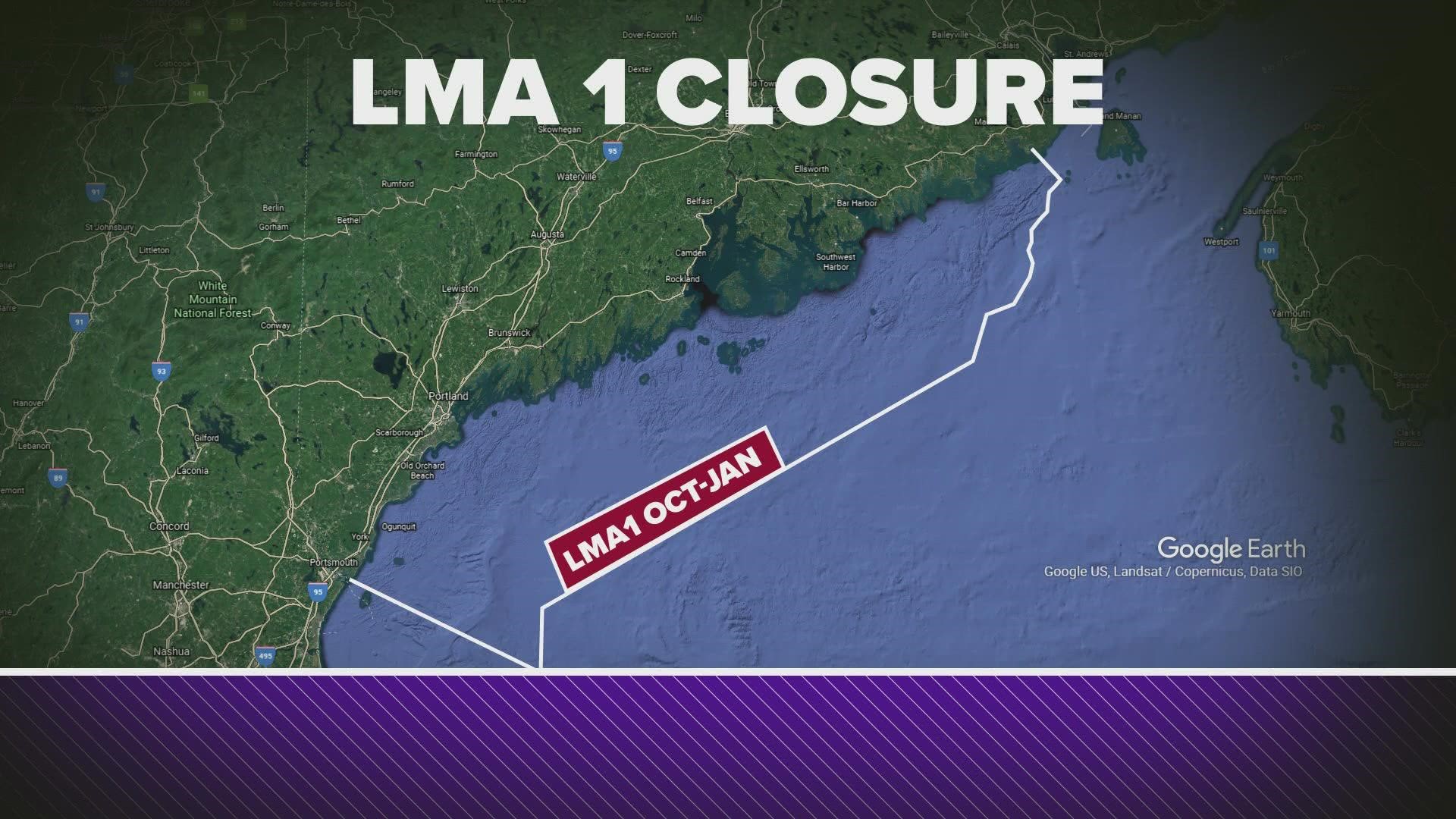MAINE, Maine — A closure of Maine's lobstering waters is on hold following a court decision on Saturday.
The National Oceanic and Atmospheric Administration (NOAA) has ordered a 960 square mile area of the Gulf of Maine to be closed to lobstering for three months -- from October through January -- to protect right whales. Right whales are an endangered species that is susceptible to getting entangled in fishing lines.
The Maine Lobstering Union (MLU) has challenged the closure in court.
On Saturday, the U.S. District Court issued a preliminary injunction, saying that fishermen can fish while the case moves through court. Without court action, the area would have been closed starting Monday, October 18.
"Just close to having my children born. It's that close, that's how good it feels," said Rocky Alley, President of the Maine Lobstering Union.
Joining the MLU as plaintiffs in the case are the Fox Island Lobster Company of Vinalhaven and Frank Thompson, a sixth-generation fisherman, who, together with his wife Jean, own and operate Fox Island; and the Damon Family Lobster Company of Stonington. The lawsuit was filed by the Portland, Maine law firm of McCloskey, Mina, Cunniff & Frawley, LLC.
“This victory by the Maine Lobstering Union is a significant step in protecting one of Maine’s most precious industries - lobstering,” said Alfred Frawley, the attorney who represented the Maine Lobstering Union in the case. “Our lobstermen have put generations of time, effort, and substantial financial resources into their craft. The lobstering industry is not only a treasure to Maine but a treasure to our American history. The regulations proposed by federal agencies would have had a chilling impact on communities throughout Maine. We will continue to push for science and data that reflect what is truly happening in our industry.”
Leaders with the Maine Lobstering Union say it's likely the issue will be discussed in court again, however, they're pleased with the decision.
"This is just a really big win for us," said Virginia Olsen, liaison for the MLU.
She hopes this ruling can help bring about greater transparency and communication with NOAA as it continues its effort to protect right whales.
"We definitely would like to see more open communication, and we know that this is just the first step in a very long battle," said Olsen.
In Judge Lance Walker's ruling, other changes to the fishery will still remain intact. That includes changes like gear marking, modifications to traps per trawl, as well the use of rope with weak links that could break easily if there's a whale entanglement. For now, however, MLU President Alley is praising the decision which he says would have negatively impacted hundreds of Maine fishermen.
"It would greatly devastate the lobster industry for the rest of the season because that's where they catch the majority of the lobster at that time of the year," said Alley.
Gib Brogan, a senior campaign manager with Oceana, an international advocacy organization focused solely on ocean conservation, wrote in a statement to NEWS CENTER Maine, "The judge’s ruling brings up some significant questions about the ongoing federal authorization of the lobster and Jonah crab fisheries. The recent Endangered Species Act biological opinion depends on the entire risk reduction rule and this ruling should cause the fisheries service to seriously question whether these fisheries can continue or whether immediate supplemental protections are necessary for the right whales that have been seen in the Gulf of Maine in previous weeks."

